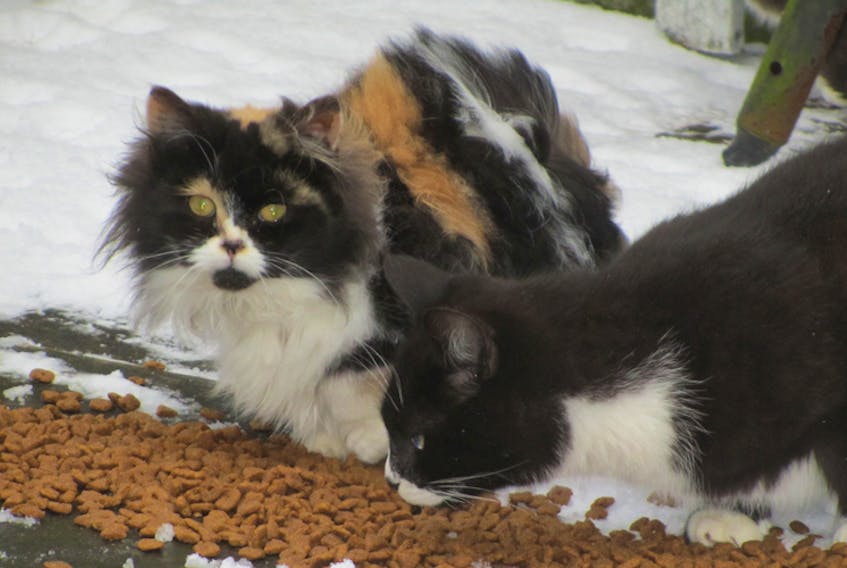Abandoned and feral cats and their kittens are a sad reality everywhere along the South Shore.
“There are so many sad stories where previously owned, unspayed house cats are booted out,” says Cheryl Bower, director of Pet Projects in Shelburne County. “They have a litter outside. The mother and her kittens are cold, wet, starving, prone to attack by other creatures.”
Not only that, but the surviving kittens can begin having their own kittens. According to the American Society for the Prevention of Cruelty to Animals, domestic cats become sexually mature at an earlier age than their wild counterparts. Cats can begin reproducing as young as four and a half to six months of age.
And so the cycle continues.

The gestation period for domestic cats is 58 to 67 days. The ASPCA notes that female cats can breed three times a year and have an average of four kittens per litter.
In just seven years, one unspayed female cat and her offspring can produce 420,000 kittens.
That’s why Pet Projects encourages pet owners to get their female cats spayed or their male cats neutered. But it’s an expense that some just can’t afford.
Pet Projects has been operating as a virtual shelter for years now, fostering stray cats and dogs and finding homes for them, with a strong focus on providing financial assistance with spays and neuters.
On June 1, Pet Projects opened a program called “Buddy’s Legacy,” offering coverage of 100 per cent of the cost of feline spays/neuters for Shelburne County residents.

Before John “Buddy” McKay passed away in 2015, he took care of many feral and abandoned cats. Thanks to his bequest, Pet Projects is offering free spay/neuters for owned, stray and feral cats in Shelburne County, at a limit of two cats per household.
“Buddy looked after a lot of strays over the years,” Bower says. “So we’re just really pleased that we’ve been able to do the planning and make the decision to put his contribution to a use that he definitely would have liked.”
Pet Projects also has live traps available to borrow for feral cats, and volunteers may be able to partner or assist with trapping those cats for spays/neuters.
Spay/neuter registration forms, as well as information on adoptions and donations, are available on the Pet Projects website at www.petprojects.ca.









